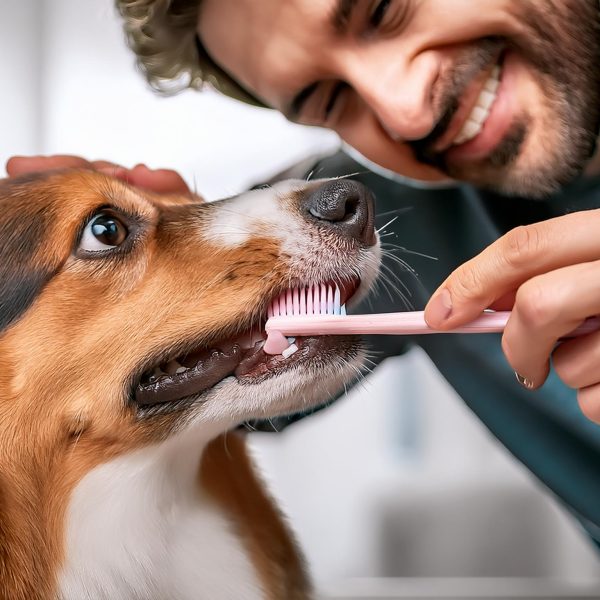In today’s fast-paced and interconnected world, the notion of well-being has expanded to encompass not just humans, but also our beloved pets. Holistic well-being for pets entails an approach that considers their mental, emotional, and physical needs. This evolving perspective underscores our increasing recognition of the profound bond shared between animals and their human companions.
The Foundation of Holistic Care: Physical Well-being
Central to the concept of pet well-being is their physical health. Ensuring that pets receive proper nutrition, regular exercise, and preventive healthcare is paramount to maintaining their overall well-being. A balanced diet tailored to their species, breed, and individual requirements plays a vital role as it directly impacts energy levels, immune system strength, and life expectancy. Providing an ample supply of water coupled with high-quality ingredients contributes significantly to their vitality.
Physical activity is another crucial aspect of pet well-being. Regular exercise not only aids in preventing obesity, but it also stimulates cognitive abilities and enhances emotional states. For instance, dogs thrive when engaged in walks and playtime, as these activities not only provide exercise but also facilitate socialization and mental stimulation. Similarly, cats benefit from toys that replicate hunting behaviors, promoting agility and mental engagement.
Taking a proactive healthcare approach is imperative for holistic well-being. This involves scheduling regular veterinary check-ups and ensuring vaccinations are up-to-date. This proactive stance enables the early identification of potential health issues, leading to timely interventions and reduced risk of long-term complications.
Nurturing Cognitive Health: Mental Stimulation
Mental stimulation is pivotal to pets’ cognitive health as part of their overall well-being. Just as humans relish challenges, pets require enrichment to stave off boredom and anxiety. Puzzle toys, treat-dispensing gadgets, and training sessions not only keep their minds active but also strengthen the bond between pets and their owners.
Obedience training holds significant benefits for dogs, as it imparts skills while deepening the connection between humans and animals through trust and mutual understanding. Similarly, cats can be trained to perform tricks that showcase their intelligence while maintaining mental acuity.
Emotional Fulfillment: Creating a Nurturing Environment
Emotional fulfillment contributes to well-being by addressing pets’ emotional needs beyond the physical and cognitive dimensions. This fulfillment arises from creating a nurturing environment that encourages interactions and fosters a sense of security. Creating a space where pets can express their behaviors freely without fear of punishment is crucial. Providing resting spots, hiding places, scratching posts for cats, and comfortable bedding and chew toys for dogs helps them feel secure and content.
Regular positive interactions such as playtime, cuddling, and grooming not only reinforce the bond between pets and their human companions but also trigger the release of oxytocin, often referred to as the “love hormone,” promoting feelings of happiness and trust.
Tailored Approaches: Recognizing Individuality
Holistic well-being for pets necessitates an understanding that each animal is unique, with distinct needs and preferences. A one-size-fits-all approach is inadequate. Instead, strategies must be crafted based on factors like their characteristics, history, and temperament. Some pets might thrive in interactive environments, while others prefer tranquility.
Moreover, holistic well-being extends to considering the living environment. Access to fresh air, natural light, and supervised outdoor exploration for cats and dogs significantly contributes to their overall well-being.
Benefits of a Holistic Approach
Embracing holistic well-being for pets yields numerous benefits. Physically, they enjoy longer, healthier lives with reduced risks of conditions like obesity and diabetes. Mentally, they remain engaged and sharp, minimizing issues stemming from boredom or frustration. Emotionally, pets flourish in an environment prioritizing their fulfillment, fostering trust and love between them and their owners.
Holistic well-being for pets signifies a paradigm shift in how we care for our animal companions. By addressing their mental, emotional, and physical needs through proper nutrition, regular exercise, mental stimulation, emotional fulfillment, and personalized care, we establish a comprehensive approach ensuring their health, happiness, and longevity. As our understanding deepens regarding the bond between humans and pets, the concept of well-being stands as a testament to our commitment to providing the best possible lives for our cherished furry friends.








